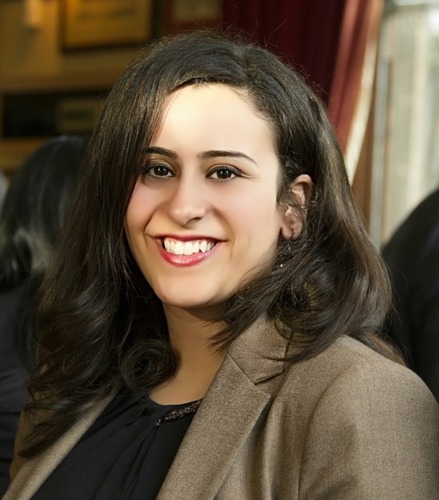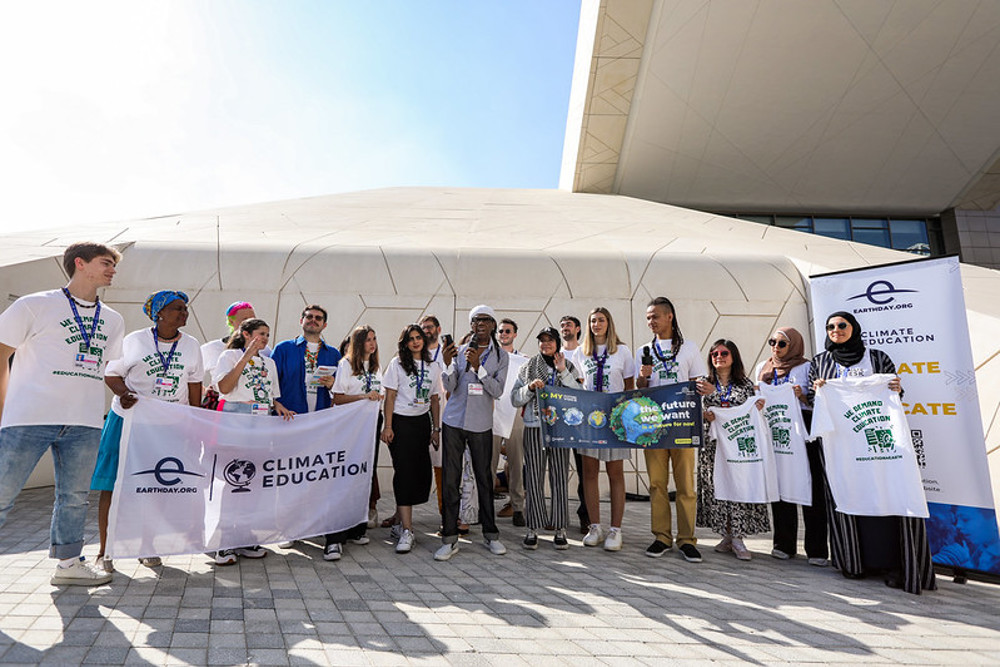Tipping the scales
Climate strategist Dina Zayed on why Arab philanthropists need to stay focussed on climate action post COP28
Thursday, 29 February 2024

Climate strategist Dina Zayed on why Arab philanthropists need to stay focussed on climate action post COP28
Thursday, 29 February 2024

 Dr Dina Zayed is a consultant and strategist and a former programme director with the Climate Emergency Collaboration Group (CECG), a philanthropic pooled fund focused on leveraging multilateralism for ambitious and just international climate action. She holds a PhD from the Institute of Development Studies, the University of Sussex and an MSc in Environmental Change and Management from the University of Oxford.
Dr Dina Zayed is a consultant and strategist and a former programme director with the Climate Emergency Collaboration Group (CECG), a philanthropic pooled fund focused on leveraging multilateralism for ambitious and just international climate action. She holds a PhD from the Institute of Development Studies, the University of Sussex and an MSc in Environmental Change and Management from the University of Oxford.
Last year broke almost every climate record with high frequency of extreme weather events including heavy snow in Los Angeles, deadly flooding in Libya, a severe sandstorm in Beijing and extreme heat across Europe causing devastating wildfires.
Indeed, just weeks after the UAE COP28 president Sultan al-Jaber brought down his gavel on the deal calling for a transition away from fossil fuels, it was confirmed that 2023 was the warmest on record.
Climate disasters in this region, warming twice as fast as the global average, have nearly tripled in the last four decades, with more than 40 million people vulnerable to climate change, and some areas experiencing at least an additional 10 months of drought.
For a region that is home to world’s most water stressed populations and the largest percentage of the world’s refugees and internally displaced people, hosting COP27 and COP28 offered a chance to address what it means to centre the effects of climate change, and the intersecting nature of vulnerability and hazard exposure.
Against that reality, we have also been reminding that MENA is receiving the lowest share of international climate finance with total finance in nearly two decades far below US$2bn and bankrolling a little over 150 projects, the absolute bulk of which has gone to mitigating the effects of climate change.
What lessons on the opportunities afforded by engaging with multilateral diplomacy have we learned from having COP27 in Egypt and COP28 in the UAE? Have local businesses, entrepreneurs, donors, and civic activists deepened their exposure to and engagement with international communities of practice?

Philanthropists and policy makers need to engage with grassroots organisations to ensure equitable climate action benefits all. Photo: UNFCC
Multilateralism - and events like COPs - are crucial avenues for civil society groups around the world to increase their influence. They are also spaces where regional leaders can connect with other state and non-state counterparties to forge action-oriented communities of practice, gather information across borders and constituencies, and enhance their advocacy skills for the benefit of their own communities.
The active engagement of local and regional groups in multilateral spaces helps increase both the fairness of the international process, as well as its possible impact on the ground and its relevance to lived realities.
COPs offer a place for signalling and influencing the articulation of collective and globally shared common goals and objectives. They also provide us with the tools – at least theoretically – to push for greater standards of transparency and accountability in the implementation of agreed to obligations and norms.
Crucially, the international process is infused by and infuses a core ingredient of collective action and that is the production and sharing of relevant knowledge and learning possibilities, where we can exchange practical experiences and deepen a commitment to evidence-generation and bringing scientific realities into close conversation with the pragmatics of policy design.
Now as the COP caravan moves on away from the MENA region and onto Azerbaijan, it is crucial that we don’t abandon strides that have been made in consolidating and identifying areas of promising mobilisation for greater climate justice.
Progress has been made to deepen the localisation of climate action, and regional engagement at the UNFCCC has most likely reached its highest ratio in a two-year run.
It is now time for Arab philanthropies to deepen their efforts and engagement with climate change to build on this momentum and to galvanise regional initiatives to both tackle the region’s complex hydro-carbon dependency, as well as transform social and economic systems that are at the heart of profound and cross-cutting vulnerabilities to the climate emergency.
It is only in championing local and regional initiatives and pushing for engagement at the international level that some of the historic imbalances in representation at the international level and in shaping key agendas can be addressed.
"The impacts of climate change in a highly unequal region where some of the world’s richest populations live side-by-side with some of the world’s most vulnerable groups must sharpen our focus.”
MENA is home to some of the wealthiest per capita states in the world, and indeed the three richest individuals in the region have more wealth than the bottom 222.5 million poorest citizens of the region combined.
The impacts of climate change in a highly unequal region where some of the world’s richest populations living side-by-side with some of the world’s most vulnerable groups must sharpen our focus.
Countering climate change requires centring principles of justice and equity, and philanthropic and private sector champions in the region have a role to play in leveraging their social and financial capital to support co-created projects where people come first.
Climate action requires a multiplicity and complexity of solutions. In taking stock of the last two years of regional mobilisation around the COPs, it may appear clear that plenty of leadership already exists on the ground, but it was not always seen or nurtured
It is also often decentralised, diffused, and routinely in need of creative and flexible support to help connect the dots across scales, and in the case of the Middle East and North Africa region, across sectors and areas of existing and deep expertise, whether that is around driving creative solutions on water scarcity or working with displaced populations.
COP28 in Dubai may be over and the spotlight no longer on the region’s climate change realities and opportunities, but the time to ensure that regional leadership and philanthropies step up to act on climate change is only just beginning.
It's a good idea to use a strong password that you're not using elsewhere.
Remember password? Login here
Our content is free but you need to subscribe to unlock full access to our site.
Already subscribed? Login here